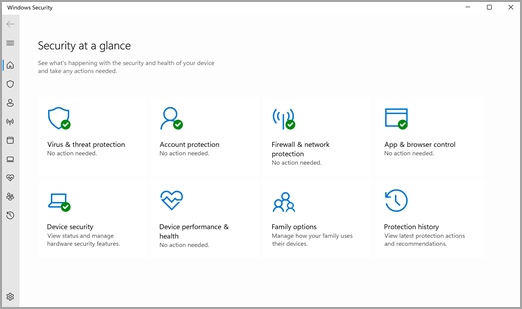Introduction
Windows operating systems are widely used across the world, from personal laptops to enterprise-level servers. While Windows offers a user-friendly interface and a multitude of software options, it also comes with security challenges. Malware, ransomware, data breaches, and other threats loom, making it crucial for users to master Windows security to safeguard their PC and data.
In this in-depth guide, we will explore the essential components of Windows security, providing you with the knowledge and tools necessary to protect your Windows system and data effectively. From the basics to advanced techniques, we will cover it all.
Understanding Windows Security
Windows security encompasses a range of features and practices that collectively defend your system and data from various threats. To master Windows security, you must first understand the key elements involved.
- User Accounts and Passwords
The foundation of Windows security begins with user accounts and passwords. Creating strong, unique passwords and utilizing multi-factor authentication can significantly reduce the risk of unauthorized access. Regularly update your passwords and be cautious about sharing your login information. - Antivirus and Antimalware Software
Installing reliable antivirus and antimalware software is vital. These tools scan your system for potential threats, removing or quarantining malicious files before they can cause harm. Popular antivirus solutions like Norton, McAfee, and Windows Defender offer real-time protection against a wide range of threats. - Windows Updates
Microsoft frequently releases updates to address security vulnerabilities and enhance system stability. Ensure that you enable automatic updates on your Windows PC to receive the latest security patches. Outdated software is often the target of exploits by cybercriminals. - Firewall Protection
Windows features a built-in firewall that can be configured to filter network traffic and protect your PC from unauthorized access. Understanding how to configure your firewall can enhance your security, especially when using public networks.
Advanced Security Measures
While the basics are essential, advanced security measures can further fortify your Windows system. Let’s delve into some advanced strategies:
- Encryption
Encrypting your data is an effective way to protect sensitive information. Windows BitLocker offers full-disk encryption, ensuring that even if someone physically steals your PC, they won’t be able to access your data without the encryption key. - Secure Boot
Secure Boot is a feature that checks for the authenticity of the operating system and prevents the loading of unauthorized bootloaders. This helps protect your system from rootkits and other low-level threats. - Group Policy
Using Group Policy, you can enforce specific security settings across your organization or personal devices. This allows you to create uniform security policies, making it easier to manage and maintain Windows security. - Virtual Private Network (VPN)
A VPN encrypts your internet connection, ensuring that your online activities are private and secure. Whether you’re working remotely or simply browsing the web, a VPN adds an extra layer of security by masking your IP address.
Data Protection
Data is often more valuable than the devices it resides on. To master Windows security, you must also prioritize data protection. Here are some best practices:
- Regular Backups
Frequent backups of your data are essential. Use Windows Backup or third-party backup solutions to create a copy of your data on an external drive or in the cloud. In case of a system failure or data loss, you can easily restore your files. - Data Encryption
In addition to encrypting your entire system, consider encrypting individual files and folders that contain sensitive data. This provides an extra layer of protection against unauthorized access. - Email Security
Email is a common vector for malware and phishing attacks. Be cautious when opening email attachments or clicking on links, especially if the sender is unknown. Implement email filtering and scanning tools to enhance your email security. - Web Browsing Safety
When browsing the internet, avoid downloading files or software from untrusted sources. Use a secure and updated web browser, and install browser extensions that block malicious websites and ads.
Conclusion
Mastering Windows security is an ongoing process that involves staying informed about the latest threats and security best practices. By understanding the fundamental principles of Windows security, implementing advanced security measures, and prioritizing data protection, you can significantly reduce the risk of cyberattacks and safeguard your PC and data effectively.
Remember, in the ever-evolving landscape of digital threats, proactive and vigilant security practices are your best defense. Protecting your Windows PC and data is not just a one-time task but an ongoing commitment to ensure your online safety and peace of mind.
In the end, the effort you invest in mastering Windows security will pay off in the form of a secure and reliable computing experience. Stay safe, stay secure, and master Windows security to protect what matters most – your PC and your data.





